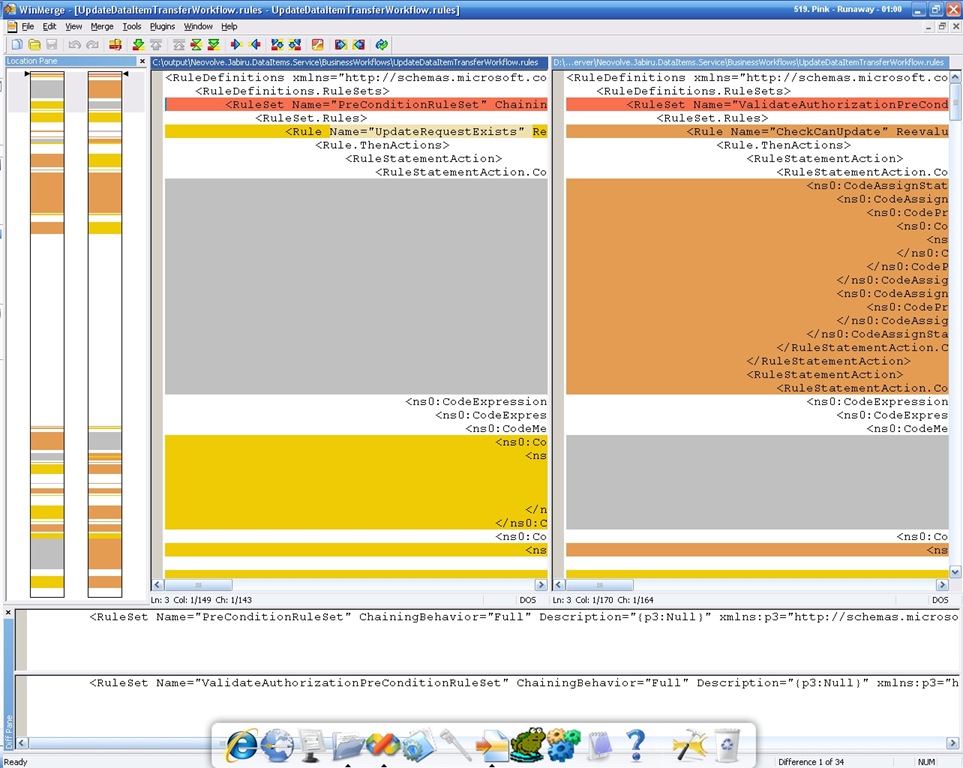I encountered a bit of a curly one today with my workflows.
Generally, I am executing WF workflows synchronously because I am using them as my business layer implementation for distributed services. This means that in order to return a value from a service call, the workflow needs to complete first. Because WF executes asynchronously by default, I am using the ManualWorkflowSchedulerService to execute workflows on the same thread as the calling process.
This became a problem when I actually want a combination of synchronous and asynchronous workflow executions for a service call. With the DefaultWorkflowSchedulerService and ManualWorkflowSchedulerService in WF, this wouldn’t be supported in the one workflow runtime instance.
My first solution was to host two runtimes, one using the ManualWorkflowSchedulerService for executing workflows synchronously, and one using the DefaultWorkflowSchedulerService for executing the asynchronous workflows. The hitch is that I also need impersonation, but this doesn’t appear to be possible when executing workflows using the DefaultWorkflowSchedulerService as the impersonated credentials get lost.
